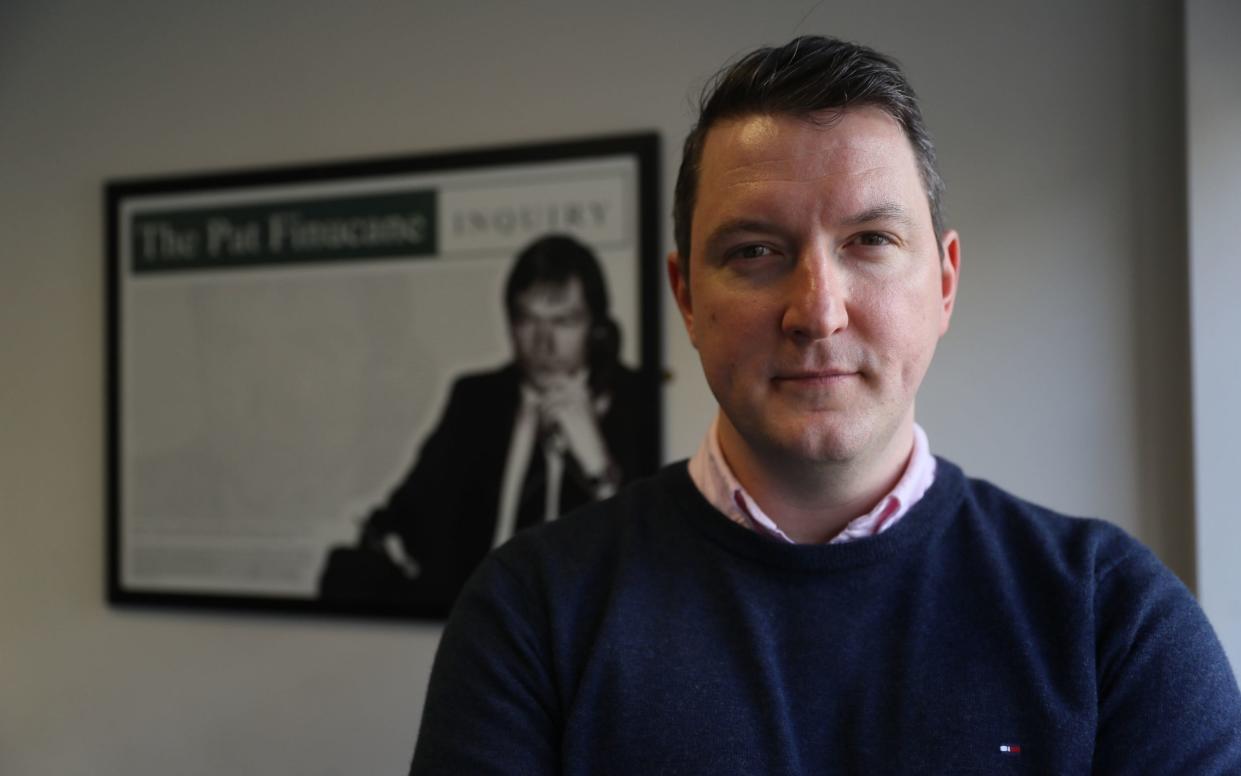Family of Troubles terror victim were ‘appalled’ by Tony Blair’s ignorance

- Oops!Something went wrong.Please try again later.
The family of a solicitor murdered by loyalist paramilitaries were “appalled” at Tony Blair’s lack of knowledge of the case.
Pat Finucane, 39, a high-profile defence solicitor who acted for high-profile IRA members was gunned down in front of his wife Geraldine and children in north Belfast in 1989.
The killing was one of the most controversial of The Troubles and it later emerged that one of his murderers, Brian Nelson, was an agent for the British Army’s Force Research Unit.
Amid evidence of state collusion in the murder, Mr Finucane’s family met with Tony Blair in 2000 after a pledge from taoiseach Bertie Ahern to organise this earlier that year.
In February 1999, based on the findings of a report by Jane Winter of the British-Irish Rights Watch, Liz O’Donnell, the Irish minister of state, wrote to Mo Mowlam, the Northern Ireland secretary, saying that a public inquiry was “necessary” and the case for such an investigation was “compelling”.
‘Disappointing meeting’ with Blair
The Republic’s government made more than one prompt to ensure the family of Mr Finucane met Mr Blair.
The meeting at No 10 Downing Street was attended by Mr Finucane’s widow Geraldine and their children Michael, John and Katherine, and had been scheduled for 30 minutes but instead lasted 50.
Solicitors Paul Mageean and Peter Madden as well as Ms Winter attended the meeting with Mr Blair, who was accompanied by Jonathan Powell.
In a confidential document dated Sept 5, 2000, Fergal Mythen, of the Irish government’s security section, said he spoke to Ms Winter after the meeting.
“It was at the start a very disappointing meeting from the family’s perspective, with Blair sticking rigidly to the line that an independent inquiry was not possible while the Stevens’ investigation was ongoing.”
John Stevens, a senior police officer who went on to be the Metropolitan Police commissioner, conducted three probes into allegations of security force collusion with loyalist paramilitaries.
She said that Mr Blair said Northern Ireland secretary Ms Mowlam had called in Mr Stevens in February 1999 but the family understood that RUC Chief Constable Ronnie Flanagan had made the decision unilaterally to block a public inquiry.
When pressed on this, “Blair backtracked somewhat, saying ‘don’t quote me on that’” and Powell “also intervened to ‘muddy the waters’ on this point”.
Ms Winter said she thought Mr Blair was “initially very dismissive of their case” and had initially tried to distance his government from it.
“He was also badly briefed and they were ‘appalled by his ignorance’ of the details of the case,” the note stated.
‘Case could negatively impact peace process’
Mrs Finucane, who had been injured in the attack, told him that though the Labour government had not created the problem, if it was not dealt with now “they too would be culpable”.
Mr Blair was told that the handling of the case could negatively impact the peace process and that it was about winning the confidence of nationalists in the system of law.
The note states that about halfway through the meeting, Mr Blair went “off-brief” and began to “engage seriously” with the arguments being put to him.
“Blair said he wanted to know the truth and that, if he found that members of the security forces had targeted individuals for murder, then ‘they would be out of a job’.
“The Finucanes were encouraged by his evident strength of feeling on this point.”
During Mr Ahern’s meeting with the family in February, to coincide with the 11th anniversary of Mr Finucane’s killing, Geraldine Finucane had asked him to arrange the meeting with Mr Blair to push him on a public inquiry.
Brian Cowen, the former minister for foreign affairs, and Ms O’Donnell also attended the February meeting.
The notes of the meeting said the report by Ms Winter was “the most shocking report they had ever written” and alleged there was “machinery within the British system which targeted people for murder”.
Mr Ahern said he had sent a letter to Mr Blair eight months previously, in June 1999, when he said the case for a public inquiry was “compelling” and asked him to proceed “urgently in this regard”.

